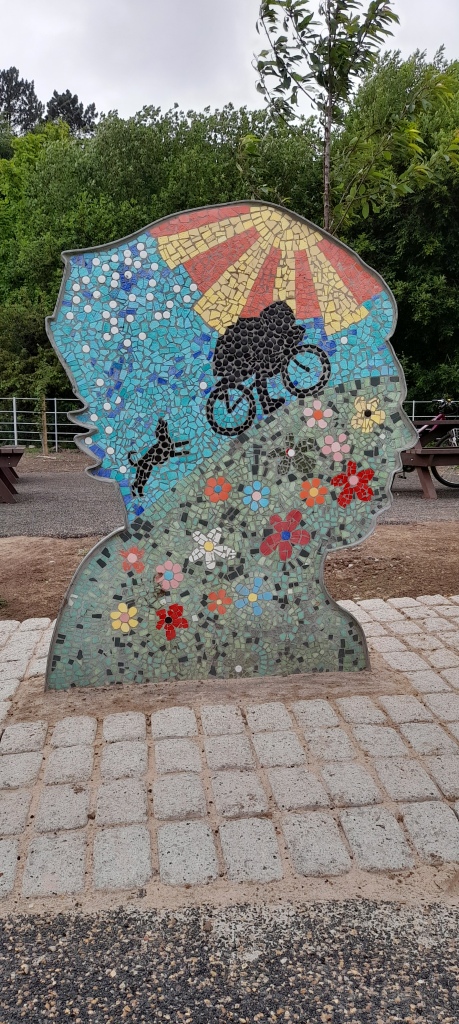In Kyoto,
hearing the cuckoo,
I long for Kyoto.
(Basho, trans. Jane Hirshfield)
Well, not Kyoto. Hebden Bridge actually. But Hebden evokes the same feelings of longing in both me and my husband as Kyoto did for Basho.
We camped there for a few days this week in the sweltering heat. We’re lucky enough that a local farmer lets us pitch on his land, with the use of the outside loo attached to the farm. Everything else is back to basics, which is part of the charm. Farm eggs for breakfast, a walk into the town to get a coffee, a walk by the river to stay cool. We often talk about moving there, but I’m quite rooted to my home town too, plus our jobs are here. And I suppose if we moved to Hebden it might not seem so special after a while. So, I’ll stick with that feeling of longing, or yearning, or nostalgia (we’ve had so many good times there). All of which brings me the haiku by Basho which I’ve been looking at as part of a task set by the Yorkshire and Lancashire Haiku group (who have kindly taken me under their wing). What follows are a few translations of Basho’s poem, plus my own version:
Kyo nite-mo Kyo natsukashi ya hototogisu (1690)
Kyo though-being-in Kyo long for : cuckoo
(Henderson’s translation)
- Henderson’s version of the haiku:
A Cuckoo in the Old Capital
In Kyo I am,
and still I long for Kyo –
oh, bird of time!
(‘A Cuckoo in the Old Capital’ is Henderson’s title)
in An Introduction to Haiku: an Anthology of Poems and Poets From Basho to Shiki, translations and commentary by Harold G. Henderson (Doubleday Anchor Books, 1958)
Henderson points out that by the time this poem was written, Kyoto’s heyday was long past, and its glories were overshadowed by Edo (Tokyo). He also explains that, in this poem, hototogisu is written with characters meaning ‘bird of time’.
- Stryk’s version:
Bird of time –
in Kyoto, pining
for Kyoto.
in Basho: On Love and Barley – Haiku of Basho, translated by Lucien Stryk (Penguin 1985)
3: Kern’s version:
even in the capital
nostalgia for the capital –
woodland cuckoo
in The Penguin Book of Haiku, translated and edited by Adam L. Kern (Penguin 2018)
In Kern’s notes, he says the cuckoo is often a sign of longing for home. Although Basho is ‘home’ (physically), emotionally he yearns for the past, and a capital that no longer exists. The yearning might even be for an idealised capital, one that never really existed. Kern adds: ‘Those travelling far from home hearing the plaintive song of the hototogisu coming from deep within the forest supposedly become seized with nostalic (natsukashi) feelings …’
- Hirshfield’s version:
In Kyoto,
hearing the cuckoo,
I long for Kyoto.
translated by Jane Hirshfield
https://www.poetryfoundation.org/poems/48708/in-kyoto-
I found it hard to pick a favourite, although once I’d read the translator’s notes, I felt it was important to know the phrase ‘Bird of Time’ in relation to the cuckoo. I did have a go at my own translation, but there are so many versions already, it was hard to bring anything new. In the end, the cuckoo or Time Bird is present only in its call, which becomes ‘the call of the past’.
In Kyoto
longing for old Kyoto
ah, the call of the past
The link below has a detailed discussion of Basho’s poem with a number of other translations:
https://hokku.wordpress.com/2021/05/26/bird-of-time/






